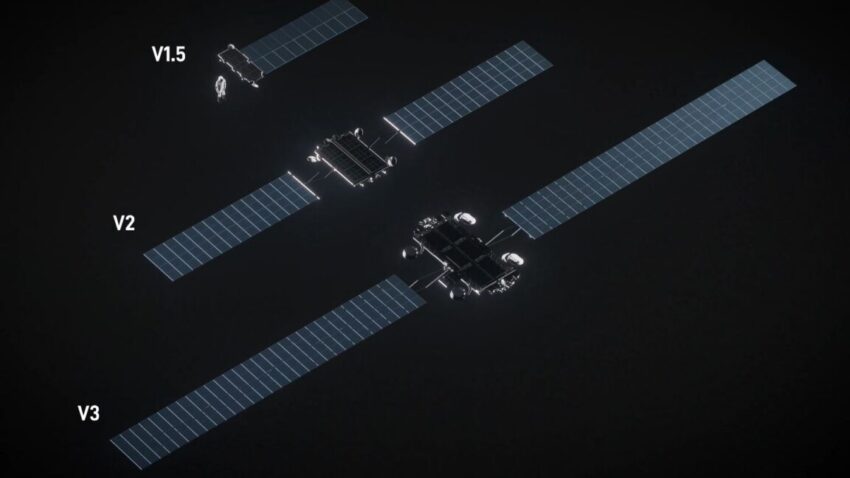
elon musk on data centers in orbit Elon Musk has announced that SpaceX will venture into the realm of space-based data centers, a development that comes amid increasing demand for computing power driven by advancements in artificial intelligence.
elon musk on data centers in orbit
The Growing Need for Computing Power
As artificial intelligence (AI) technologies advance, the demand for computing storage and processing capabilities has surged. This trend has prompted both established tech giants and startups to explore innovative solutions to meet the escalating needs of data processing. The concept of space-based data centers has emerged as a potential solution, leveraging the unique advantages of operating in a low-gravity environment.
Current Landscape of Space-Based Data Centers
Several startups, including Starcloud, have begun to explore the feasibility of launching data centers into orbit. These companies aim to harness the benefits of space, such as reduced cooling costs and the ability to operate in a less congested electromagnetic environment. The idea is not merely theoretical; it has garnered the attention of influential figures in the tech industry.
Tech Titans Enter the Fray
In May, former Google CEO Eric Schmidt made headlines by acquiring Relativity Space, a company focused on 3D printing rockets. Schmidt’s interest in space-based data centers underscores the growing recognition among tech leaders of the potential for off-planet computing solutions. His investment reflects a broader trend where prominent figures in technology are looking beyond traditional data center models.
Earlier this month, Amazon founder Jeff Bezos also weighed in on the topic, predicting that gigawatt-scale data centers will be constructed in space within the next 10 to 20 years. Bezos’s vision aligns with the increasing recognition that as data generation continues to grow exponentially, terrestrial data centers may struggle to keep pace with demand. The prospect of building data centers in space offers a compelling alternative.
Elon Musk’s Vision for Space-Based Data Centers
Elon Musk, known for his ambitious projects ranging from electric vehicles to interplanetary travel, has now turned his attention to the potential of space-based data centers. Musk’s company, SpaceX, currently operates more space-based infrastructure than any other entity globally, positioning it uniquely to capitalize on this emerging market.
Advantages of Space-Based Data Centers
There are several advantages to placing data centers in orbit:
- Cooling Efficiency: Space offers a naturally cold environment, which could significantly reduce the energy costs associated with cooling data centers on Earth.
- Reduced Latency: For certain applications, especially those requiring real-time data processing, proximity to satellites could reduce latency compared to terrestrial data centers.
- Scalability: Space-based data centers could potentially be scaled more easily than their Earth-bound counterparts, allowing for rapid expansion as demand grows.
- Environmental Impact: Utilizing space for data storage may alleviate some of the environmental concerns associated with traditional data centers, which often consume vast amounts of energy and land.
Challenges and Considerations
Despite the potential benefits, several challenges must be addressed before space-based data centers can become a reality:
- Cost: The initial investment required to launch and maintain data centers in space is substantial. The economics of such operations must be carefully evaluated to ensure viability.
- Technology Development: The technology needed to support data centers in orbit, including power generation, cooling systems, and data transmission, is still in its infancy.
- Regulatory Hurdles: The regulatory landscape surrounding space operations is complex and may pose challenges for companies looking to establish data centers in orbit.
- Security Concerns: Data security is paramount, and ensuring the integrity of data stored in space will require robust security measures.
Stakeholder Reactions
The announcement of SpaceX’s interest in space-based data centers has elicited a range of reactions from industry stakeholders. Many experts believe that Musk’s involvement could accelerate the development of this technology, given SpaceX’s track record of innovation and successful missions.
Industry Experts Weigh In
Industry analysts have noted that Musk’s vision aligns with broader trends in the tech sector, where companies are increasingly looking for sustainable and efficient ways to handle growing data demands. Some experts argue that Musk’s entry into this space could catalyze investment and research into the necessary technologies, potentially leading to breakthroughs that make space-based data centers more feasible.
Concerns from Environmental Advocates
On the other hand, environmental advocates have raised concerns about the implications of launching large-scale data centers into space. They argue that while the operational benefits may be significant, the environmental impact of rocket launches and the potential for space debris must be carefully considered. The balance between technological advancement and environmental stewardship will be a critical factor in the development of space-based data centers.
Future Implications
The potential establishment of space-based data centers could have far-reaching implications for the tech industry and society as a whole. As AI continues to evolve and generate massive amounts of data, the ability to process and store that data efficiently will become increasingly crucial.
A Paradigm Shift in Data Management
If successful, space-based data centers could represent a paradigm shift in data management. They could enable new applications and services that rely on real-time data processing, enhancing everything from autonomous vehicles to smart cities. The implications for industries such as healthcare, finance, and entertainment could be transformative.
Collaboration and Competition
The race to establish space-based data centers is likely to foster both collaboration and competition among tech companies. As more players enter the field, partnerships may emerge to share expertise and resources, while competition could drive innovation and lower costs. This dynamic could accelerate the timeline for deploying space-based data centers, making them a reality sooner than anticipated.
Conclusion
Elon Musk’s announcement regarding SpaceX’s plans for space-based data centers marks a significant development in the ongoing quest for more efficient data processing solutions. As the demand for computing power continues to grow, the exploration of off-planet data storage could provide a viable alternative to traditional data centers. While challenges remain, the potential benefits are substantial, and the involvement of influential figures like Musk, Schmidt, and Bezos could catalyze advancements in this nascent field. The future of data management may very well lie beyond our planet.
Source: Original report
Was this helpful?
Last Modified: October 31, 2025 at 11:37 pm
2 views















